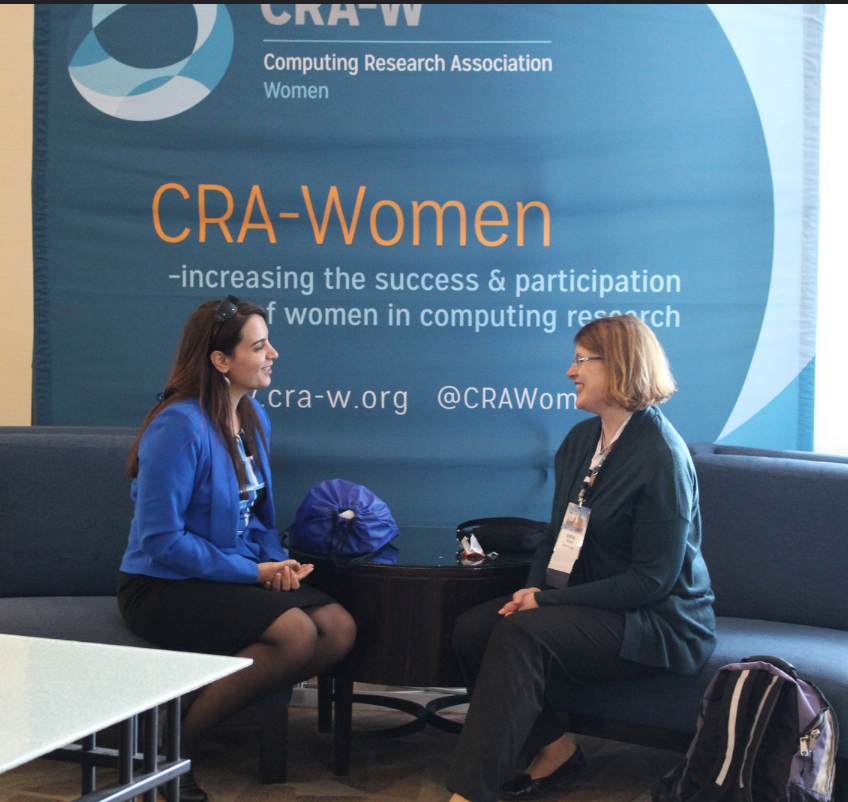Lockdown lifted, Suspect Caught | Grad Cohort

Two days of lockdown in a building full of 551+31+ women - some of them truly inspirational and the rest on their path to be one. This was held in response to a threat to women in computing. These women were briefed about their incredible role as the harbinger of the new era of computing research. All the incidents listed in this report are truly personal anecdotes. No person or organization shall be held responsible. Pardon my language, I have been lately watching a lot of cop thrillers.
My experience at this year’s CRAW grad cohort was no less than a thriller; as with every passing session I rediscovered the purpose of my grad studies. As an early career woman with mostly industry experience and now diving into computing research, I had a lot of apprehensions about going against the grain with my research choices. If you are someone who is having one of those “I am not so sure” moments in your research, I say this article and the next grad cohort is for you.
Grad cohort is aimed to help graduate students in their early years achieve academic and career success. This year 551 students were sponsored to attend this event in San Diego. The 2 day cohort hosted 31 senior computing researchers and professionals to share their strategies and experiences for a successful career. Each time slot had 3 parallel sessions, catering to students in their first, second and third year separately. Here, I list a brief summary of the sessions I chose to attend. Feel free to contact me (@Shamya Karumbaiah) for the full presentation on all the sessions.
The day 1 began with a short alum panel discussion. It was a delight listening to Dr Bushra Anjum (Amazon) talk about her experiences with Impostor Syndrome. I could acknowledge the presence of my own inner critic and the possibility to tame it for my benefit. She also went on to explain how a PhD doesn’t shut the door to industry; but rather keeps the door to academia open. Saeideh Bakshi (Yahoo) spoke about those dark moments in everyone’s PhD and to come in terms with it, keeping a positive attitude.
A.J. Brush (Microsoft Research) and America Chambers (University of Puget Sound) facilitated the fun-filled networking session. It is easy to loathe networking if it is perceived as marketing; the key is to make it relational and not transactional. It is also important to realize that networking is not a substitute for quality work. Some easy tips on cultivating these productive relationships were presented and practiced.
YY Zhou (UCSD) and Nancy Amato (Texas A&M) presented their zigzag way to find a research topic and demonstrated how one will not be stuck with his/her PhD topic for the rest of life. Also, how spanning two fields is becoming increasingly popular. Moving from coursework to picking a topic is often a low point and it is natural. The best topics are those which intersect your talent, your interest and the social need; chasing hot topics is not always a solution. Many useful tips were listed in the presentation along with the list of 10 places to search for a research topic. This was complemented with the presentation by Rebecca Wright (Rutgers University) which neatly listed tips to find and develop an effective working relationship with your advisor/mentor.
It was a delight listening to the Assistant Director of the National Science Foundation (NSF) for the Computer and Information Science and Engineering (CISE), Jim Kurose talk about the future of computing. He presented on National Science Foundation (NSF) and elaborated on the computing frontiers. I was especially fascinated hearing about the efforts on ‘CS for all’ - aimed at providing high quality CS education for K to 12. He emphasized the importance of building the CS community to realize all these goals.
On the second day, I chose to attend the third year session on PhD academic career paths and job search by Susan Rodger (Duke) and Julia Hirschberg (Columbia). Being new to academic settings, this was highly informative to me. The differences between teaching and research positions were clearly outlined and a systematic approach to climb up the ladder in either case was presented. Susan also spoke about the recent increase in tenure track positions in teaching.
My final session was with A.J. Brush and Ming Lin (UNC) on building our professional persona. In addition to the way we present ourselves in a professional setting, the significance of quality control on what is shown as your public profile was highlighted, including updating the many arenas like webpage, github, twitter, digital libraries, etc.
To summarize - neatly organized, wisely picked sessions, great speakers, accessible 1:1 advising with mentors, good posters, DJ night/dancing, and of course great food ! Breaks between the sessions were well structured to make the best use of the opportunity to build mentoring relationships. I got most of the reinforcements on my research choice during these casual chats with the senior researchers. It was nice to see UMass Amherst at the forefront with Lori Clarke as a Co-Chair and the enlightening keynote by Jim Kurose.
This is written solely from the perspective of a first year graduate student trying to solidify her research goals. The beauty of grad cohort is that you have a good mix of sessions to specially cater to your needs. The rule of thumb is to dump your personal devices in the room and take the utmost advantage of these two days.
